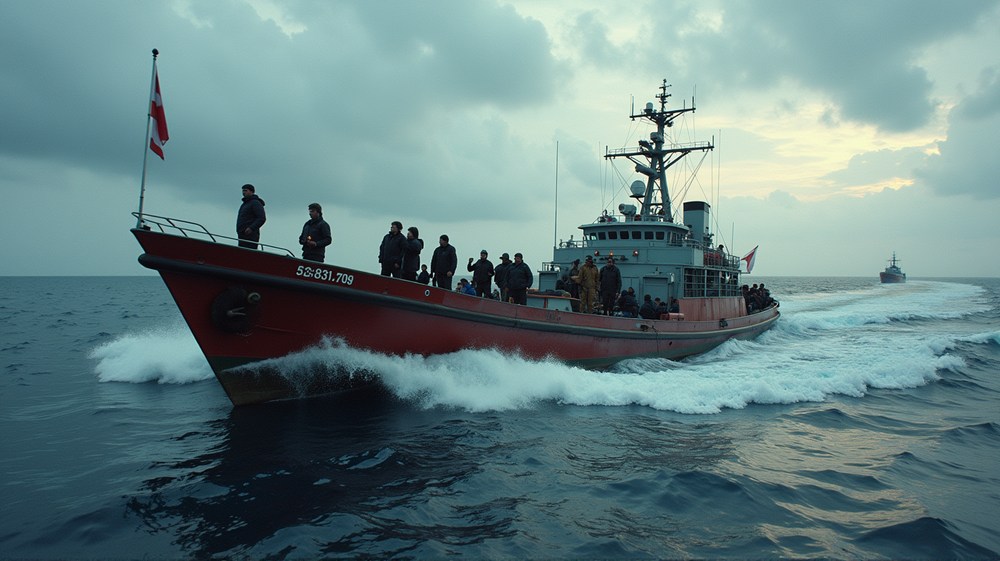In a gripping international incident that has captured global attention, activists attempting to breach the Israeli naval blockade to deliver aid to Gaza have alleged mistreatment during their detention in Israel. These claims have stirred emotions worldwide, receiving both staunch support and staunch denial.
Allegations of Mistreatment
Some 450 activists, including prominent figures like Swedish activist Greta Thunberg and Nelson Mandela’s grandson, Mandla Mandela, were intercepted by Israeli forces during their voyage on the Global Sumud Flotilla. The flotilla of 42 ships aimed to break the Gaza blockade with a symbolic load of aid. According to Scripps News, activists reported being treated “like monkeys” with medicines withheld, highlighting a narrative of verbal and psychological abuse.
Israel’s Denial and Protest from Governments
However, Israel’s Foreign Ministry firmly dismissed these allegations as “brazen lies,” asserting that all legal rights of detainees were upheld. Despite these denials, the matter has not escaped international scrutiny, with several governments, including Turkey and Greece, issuing formal protests over the handling of their citizens.
Tactics and Conditions Described in Detail
Accounts from the detainees describe conditions designed to intimidate and humiliate. Italian journalist Lorenzo D’Agostino testified to being subjected to sleep deprivation and threats involving aggressive dogs. Another activist said they were forced to kneel for hours, enduring constant stress and humiliation.
A Proud Controversy: Israel’s Stance
Israeli National Security Minister Itamar Ben-Gvir expressed no regrets, applauding the treatment meted out to the “flotilla activists” as fitting for supporters of terrorism. His words reflect a hardline stance that supports the actions taken, igniting controversy and drawing condemnation from around the globe.
A Ripple Effect Across the Globe
The flotilla’s interception has activated a wave of worldwide demonstrations. Voices calling for justice echo in cities worldwide, highlighting the continuing geopolitical complexity of the Gaza blockade. Meanwhile, efforts, such as those initiated by U.S. President Donald Trump, make turbulent attempts to broker peace amidst these tensions.
As this dramatic chapter unfolds, the world’s eyes remain fixated on how the story progresses and what it implies for future humanitarian initiatives in the region. The global community waits and watches, amid calls for fairness and justice, as these protests underline a deep-seated global divide that intricately ties human rights to complex international politics.












